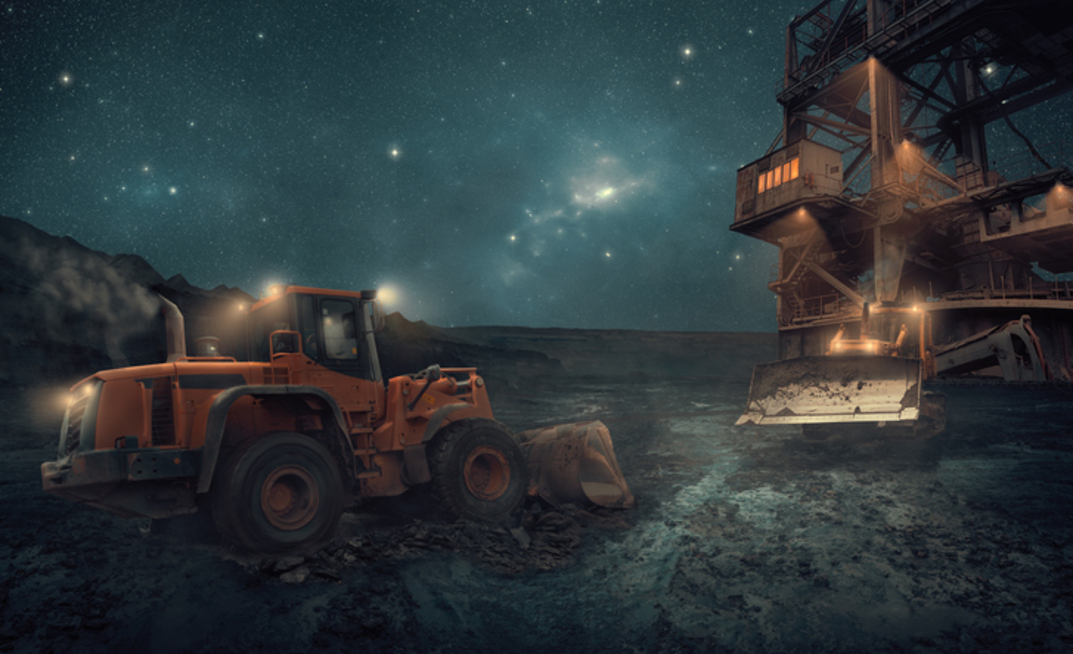While testimony from industry participants and academics underscored the need for thorough study and government support in pursuing space mining activities, some committee members questioned the viability of the emerging field and the committee's jurisdiction to address it.
The hearing opened with Arizona Congressman and chair of the subcommittee Paul Gosar explaining how the US is falling behind in the space mining sector.
"The fact is the rest of the world, including some of our greatest competitors, like China and Russia, have started a new space race," he said. "This time, it isn't a race to land someone on the moon for bragging rights. It is a race to establish a permanent, sustained space presence that will allow these countries to tap into the vast resources in space and subsequently control life on Earth in immeasurable ways."
The Congressman noted the challenges in Earth-based mining and the necessity of turning towards space for resources, citing the growing demand for critical metals to facilitate the energy transition.
During his introduction, Congressman Gossar criticised the Biden administration's policies, claiming they exacerbate reliance on China for critical minerals, posing threats to national security and economic interests.
"In order to maximise the national security, economic and environmental interests of the United States, prioritising domestic mineral production is key,' he said. "America must also prepare to lead the world into the next frontier space mining, as a country wants us to accept that we are in the midst of a new space race."
Following his comments, Melanie Stansbury Congresswoman of New Mexico and committee ranking member, agreed that the country needs to address critical minerals issues for the sake of national security but urged a realistic perspective on space mining, emphasising that it is not an immediate solution.
Stansbury also added that the Biden administration's strategies regarding stockpiling minerals, collaborations with allies, and environmental considerations would have a more short-term impact.
"I do look forward to hearing from the folks today who are going to share about the near-term and longer-term aspirations of mining and space, what the technology looks like, what the ethical, moral and, and legal considerations of all of that is. But we have to actually act here on Earth. In the meantime, you know, there are also a number of issues that we have to be conscious of as we're pursuing these strategies," said Congresswoman Stansbury, calling the hearing an "odd distraction" from more pressing issues.
Chinese exploration
The role China is playing in this new space race became a recurring theme throughout the hearing, with witnesses repeatedly referring to the country's earthly and celestial dominance in mineral extraction.
"Humanity stands on the precipice of a new era, one that will be defined by space development and the utilisation of space resources," Eric Sundby, co-founder and chief executive of Terra Space and executive director of the Space Force Association, said.
"Space holds an endless amount of opportunity for America, both economic and strategic. Yet this opportunity is challenged by the Chinese Communist Party and its allies and Russia and the growing number of states as China has launched the international lunar Research Station organisation initiative over the last year."
Sundby called on Congress to advocate for innovative approaches to access space resources, noting this could be achieved with grants and funding similar to that implemented by the USGS for domestic critical projects and production.
While Sundby's Terra Space mineral exploration company applies artificial intelligence to the mineral analysis process, he referenced the upcoming space mission of another company.
"In January 2024, a company from my home state of Texas -Intuitive Machines- will return America to the lunar surface for the first time since 1972. What is notable about this feat is that it is done by a commercial company," said Sundby. "This commercialisation of access to space is what gives our country the strategic advantage. It is private enterprise that will provide new opportunities in the field of mineral discovery, mining and processing and will open up access to space resources."
To end his testimony, Sundby quoted President John F. Kennedy in vowing that "we shall not see space governed by a hostile flag of conquest, but by a banner of freedom and peace."
Space minerals
Greg Autry, director and clinical professor of Space Leadership, Policy, and Business at the Thunderbird School of Global Management, used his testimony to highlight some of the minerals that could be found on the moon.
"Earth's moon is roughly the size of Africa and is covered with impact craters, some of which are composed of nickel, iron, and platinum group metal asteroid cores," said Autry.
Autry added that data suggests an "enormous mass concentration" of metals is buried near the moon's South Pole.
"Dr. Peter James of Baylor University describes it as a pile of metal five times larger than the Big Island of Hawaii," he said. "NASA's Psyche mission will be the first to visit a metal asteroid; the press suggested that mining Psyche will make us all billionaires. The reality is that when we do learn to mine these materials, market prices will adjust, but everyone on Earth will lead richer lives."
Ultimately, Autry called for the US to become producers rather than consumers in the minerals extraction industry, especially in the new frontier of space.
At the end of the hearing, Congresswoman Stansbury thanked the witnesses but again called into question the reason the public lands and waters oversight committee was holding a hearing on the topic at all.
Noting it would be more appropriate for the bipartisan science and space committee.
"There is a real jurisdictional question," she said.
























